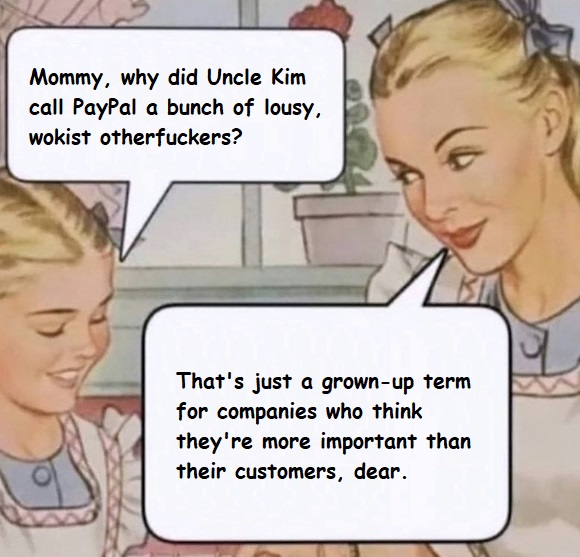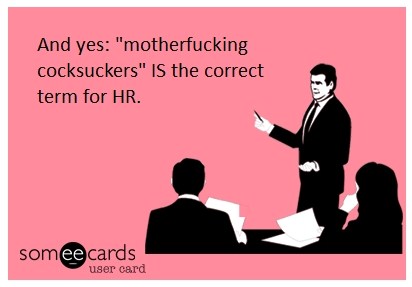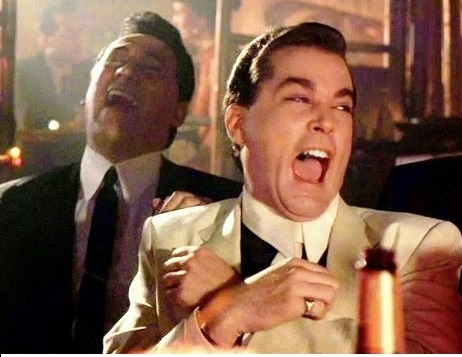(This post first created on Friday 10/7)
From the Wokistas at PayPal, telling me about the changes to their conditions of business:
You may not use the PayPal service for activities that:
1. violate any law, statute, ordinance or regulation.
2. relate to transactions involving (a) narcotics, steroids, certain controlled substances or other products that present a risk to consumer safety, (b) drug paraphernalia, (c) cigarettes, (d) items that encourage, promote, facilitate or instruct others to engage in illegal activity, (e) stolen goods including digital and virtual goods, (f) the promotion of hate, violence, racial or other forms of intolerance that is discriminatory or the financial exploitation of a crime, (g) items that are considered obscene, (h) items that infringe or violate any copyright, trademark, right of publicity or privacy or any other proprietary right under the laws of any jurisdiction, (i) certain sexually oriented materials or services, (j) ammunition, firearms, or certain firearm parts or accessories, or (k) certain weapons or knives regulated under applicable law.
Before anyone gets all upset (on my behalf), let me just say that I have never ever purchased any of the above highlighted items using PayPal.
Nope; I first transfer the PayPal funds into my bank account, and then I go off and buy guns, ammo, MAGA hats, knives/bayonets, and sex toys that have the word “nigger” printed on them.
Just wanted to clear that all up.
Update (10/8): Oh looky here: PayPal has revoked part of their policy, saying:
PayPal has backtracked on a published policy that would have fined users $2,500 for spreading “misinformation,” claiming the update had gone out “in error.” [Yeah, I bet it did. Fuckers. — Kim]
“An AUP notice recently went out in error that included incorrect information. PayPal is not fining people for misinformation and this language was never intended to be inserted in our policy. Our teams are working to correct our policy pages. We’re sorry for the confusion this has caused,” a spokesperson told National Review in a written statement.
The course reversal comes after the policy changes had started to attract media scrutiny as well as criticism on Twitter. Former PayPal president David Marcus even blasted the company over the implication that it could seize customers’ money for finding their views objectionable.
I wonder if they’d find this “objectionable”:
You pathetic little banker-wannabes are a bunch of lousy, wokist motherfuckers, and I hope states like Texas stop doing business with you altogether, and millions of your account-holders close their accounts rather than be subject to your pissy little regulations.
I’m taking a different tack.

Try and “fine” me by stealing money from my account without my written permission. I fucking dare you.
‘nother Update (10/9):
I just closed my account. Fuck ’em.









